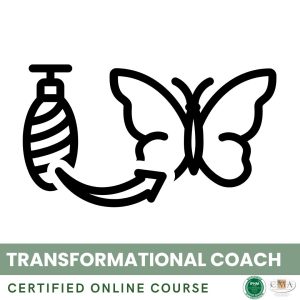The sexuality of transgender and intersex people is a complex subject that is still too rarely addressed, including within LGBTQ+ communities. Yet, understanding the specific challenges of these populations is essential to adequately support them in their emotional and sexual development.
Transgender individuals are those whose gender identity does not correspond to the sex assigned to them at birth. They can undergo a medical transition process (hormone therapy, surgeries) and/or a social one (changing their name, pronoun, and gender expression) to align their body and their identity. This journey often has a significant impact on sexuality, both in terms of body image, desire, practices and relationships.
A major challenge is that of gender dysphoria, that is the incongruence between one’s anatomy and identity which generates a feeling of discomfort and malaise. Dysphoria can make engaging in sexual interactions difficult, from fear of not being recognized in one’s gender, of being reduced to one’s anatomy or of being confronted with parts of one’s body that cause suffering. Some trans people will avoid sexual intercourse before or during their transition, others will negotiate practices with their partner(s) that do not trigger their dysphoria.
Transition medical treatments also affect sexuality. Hormone therapy (testosterone for trans men, estrogen and anti-androgens for trans women) alters libido, sensations, and the distribution of erogenous zones. Genital surgeries create new possibilities in terms of sexual practices but require a period of repossessing and learning pleasure. Each trans person will have a unique experience of these effects, depending on their journey and expectations.
Luca, a trans man, shares, “Since I started taking testosterone, I rediscovered my erotic body. My desire has grown, my clitoral sensations have improved due to its growth. I appreciate stimulating my top surgery scars; I find them beautiful and sensual. However, I still struggle with vaginal penetration; it reminds me that I don’t have a penis and it blocks me. I talked to my boyfriend about it, and we found other ways to penetrate me that suit me better.” This testimony illustrates the complexity of transsexual experience, between dysphoria and reappropriation, continuity and change in erotic scripts.
Another issue is the sexualization and fetishization of trans bodies. In a cisnormative society that sees trans bodies as exotic or deviant, it is common for trans people to be reduced to a fantasy or a sexual experience. This can take the form of intrusive comments about their genitals, “tests” to verify the “reality” of their identity, commands to fit certain gendered sexual scripts. This sexualization is a form of violence that denies the humanity and self-determination of trans people.
Intersex people, on the other hand, are born with sexual characteristics (genital, gonadal, or chromosomal) that do not fit typical definitions of female and male. Long pathologized and made invisible, they still undergo non-consensual genital mutilation intended to “normalize” them and assign them a gender. These early operations often have harmful consequences on their sexual health, such as painful scarring, loss of sensitivity, difficulties reaching orgasm.
Hana, an intersex person, shares, “At birth, I was assigned female sex. At age five, they removed what was called an ‘enlarged clitoris’, without explaining what was being done to me. For a long time, I felt nothing in the genital area, I was having sex to please my partners but without any real desire. It took a long journey to relearn how to live my body, to love it in its difference. Today, I am campaigning for intersex children to be allowed to grow up as they were born, without being mutilated.” This testimony indicates the impact of medical violence on the intimate lives of intersex people and the importance of respecting their bodily integrity.
A common aspect of trans and intersex experiences is often the feeling of being dispossessed of one’s body and sexuality by medical, social, and moral injunctions. The reclamation of one’s body, exploring and appreciating its uniqueness then becomes a central issue. This requires deconstructing internalized norms, affirming one’s identity, releasing gender injunctions in sexuality. Practices such as body positivism, feminist and queer post-porn, self-eroticism, and slow sex can be invaluable resources in this journey.
As a coach, it is essential to adopt an affirmative, de-pathologizing approach focused on respecting the self-determination of transgender and intersex individuals. This involves shedding one’s prejudices, using the correct pronouns and anatomical terms, and not reducing the person to their journey. It’s about welcoming the complexity and diversity of experiences without judgment or projection. Basic knowledge about transition processes, the effects of treatments, intersex claims are necessary to adapt one’s support.
The aim is to create a safe space where the person feels confident to explore their sexuality at their own pace, respecting their boundaries, and needs. This can be facilitated by working on body image, self-esteem, managing dysphoria, and communication with the partner(s). Exercises for reconnecting with sensations, discovering new erogenous zones, affirming one’s desires can be suggested. The goal is to uphold the right to a fulfilling and sovereign sexuality, regardless of the person’s body and gender.
Here is a summary of the key points to remember from this text on the sexuality of transgender and intersex people:
Key Takeaways:
– The transition processes of trans people (medical and/or social) significantly impact their sexuality, their relationship to their bodies, their desire and practices.
– Gender dysphoria can make engaging in sexual relations difficult due to fear of not being recognized in one’s gender. Every trans individual has a unique experience of the effects of transition.
– Medical treatments (hormones, surgeries) alter sensations, erogenous zones, and necessitate a relearning of pleasure.
– Trans people often confront sexualization and fetishization of their bodies which denies their humanity.
– Intersex people still undergo non-consensual genital mutilation which has harmful consequences on their sexual health.
– A central challenge is reclaiming one’s body and sexuality by deconstructing internalized gender norms. Practices such as body positivity or slow sex can help.
– As a coach, one should adopt an affirmative and de-pathologizing stance, shed biases and welcome the diversity of experiences without judgment.
– The goal is creating a safe space to enable the person to explore their sexuality at their own pace, respecting their boundaries and needs, while bolstering their self-esteem.
👉 To download docx (Editable) file click here : Click here
👉 To download PDF file click here : Click here
👉 To download MP3 file click here : Click here







